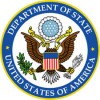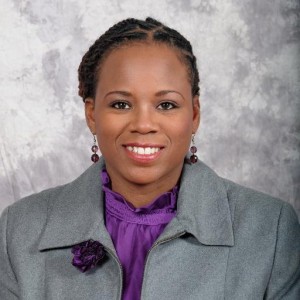 Carol Ammons is serving her first term as the full-time state representative of the 103rd District, which includes Champaign-Urbana. Ammons brings her experiences as a grassroots community organizer for equality in education, media and technology access, and civil rights to her work as a public servant in the House of Representatives. In 2007, Ammons was appointed to the Champaign County Board, where she chaired the Policy, Personnel, and Appointments Committee and served on the Environmental Land Use Committee, the Highway Transportation Committee, and the Justice and Social Services Committee. While on the county board, she worked for the creation of the first wind farm ordinance in Champaign County. As state representative, Ammons continues to promote renewable energy throughout the state and work to strengthen regulations to protect the environment and our natural resources.
Carol Ammons is serving her first term as the full-time state representative of the 103rd District, which includes Champaign-Urbana. Ammons brings her experiences as a grassroots community organizer for equality in education, media and technology access, and civil rights to her work as a public servant in the House of Representatives. In 2007, Ammons was appointed to the Champaign County Board, where she chaired the Policy, Personnel, and Appointments Committee and served on the Environmental Land Use Committee, the Highway Transportation Committee, and the Justice and Social Services Committee. While on the county board, she worked for the creation of the first wind farm ordinance in Champaign County. As state representative, Ammons continues to promote renewable energy throughout the state and work to strengthen regulations to protect the environment and our natural resources.
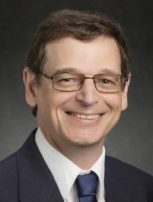 Dr. Ian Brooks is a research scientist in the Graduate School of Library and Information Science with a joint appointment at the National Center for Supercomputing Applications. He is also an adjunct professor at the Universities of South Florida Global Health) and Saskatchewan (Nursing), and an advisor to CDC and WHO/PAHO on the use of computing and “Big Data” in public health. He holds a Ph.D. in Biochemistry and started his career as a bench scientist doing drug discovery in areas including HIV/AIDS, Alzheimer’s, and heart disease. Dr. Brooks has been developing biomedical data management and analysis software for more than 20 years. Over the last 10, he has been working on INDICATOR an advanced information system for monitoring the health of a community; human, animal, and environmental. He is currently working with WHO to establish the first WHO Collaborating Center focused on data-driven global health at the University of Illinois.
Dr. Ian Brooks is a research scientist in the Graduate School of Library and Information Science with a joint appointment at the National Center for Supercomputing Applications. He is also an adjunct professor at the Universities of South Florida Global Health) and Saskatchewan (Nursing), and an advisor to CDC and WHO/PAHO on the use of computing and “Big Data” in public health. He holds a Ph.D. in Biochemistry and started his career as a bench scientist doing drug discovery in areas including HIV/AIDS, Alzheimer’s, and heart disease. Dr. Brooks has been developing biomedical data management and analysis software for more than 20 years. Over the last 10, he has been working on INDICATOR an advanced information system for monitoring the health of a community; human, animal, and environmental. He is currently working with WHO to establish the first WHO Collaborating Center focused on data-driven global health at the University of Illinois.
Title: The Use of Data in Public Health Decision Making
(Abstract) Everyone has a sense of the current health of their community, whether it is through waiting times at a clinic, noticing that children are off school sick, or there are more people coughing and sneezing on the busses. Increasingly these real observations are backed up by ICT-based data from social media postings and mHealth applications. These real and virtual observations by themselves, however, are not sufficient evidence on which to base public health decisions and establish policy, but neither should they be discounted. By combining these data sources with more traditional public health disease surveillance it is possible to provide more accurate and rapid information for public health decision makers. This presentation will discuss INDICATOR a free program for managing these different kinds of data and show how it has been used to respond to disease outbreaks. It will also discuss the in-progress extension of INDICATOR to support decision making for malaria and other disease control efforts.
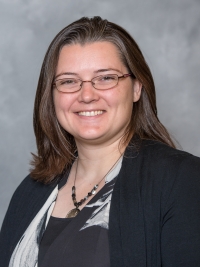
Professor Jennifer Carrera is affiliated with the Department of Sociology and the Environmental Science and Policy Program at Michigan State University. She recently joined Michigan State University after completing her post-doctorate in Environmental Health under the direction of Phil Brown at Northeastern University. She is jointly appointed in the Department of Sociology and the Environmental Science and Policy Program and is part of the campus-wide Global Water Initiative, which is intended to deepen, enrich, and foster collaboration across MSU’s expansive water scholarship on campus. Professor Carrera hold a Ph.D. in Sociology and an M.S. in Environmental Engineering from the University of Illinois at Urbana-Champaign and an M.S. in Biostatistics from Emory University. Her primary area of research is on environmental justice issues around access to water among economically and politically marginalized populations. Her work is organized around three dimensions: critical analyses of the human-environment, integrated approaches for low-cost technologies, and community capacity building through citizen science and community based participatory research. Through this work she hopes to improve data translation within marginalized communities and direct technology design and policy initiatives towards integrated, sustainable solutions for improving access to environmental resources for low-income populations. Her current and previous research has examined the context of impaired water and sanitation access in Lowndes County, Alabama and Detroit, Michigan. Two new research projects, one in the U.S/Mexico border region and another in Flint, Michigan (currently pending NIH funding approval), examine the impact of community level knowledge about water quality on local environmental health governance and decision making.
For more, click on http://sociology.msu.edu/faculty/profile/jennifer-carrera-phd/.
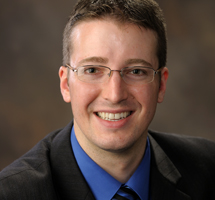 Jeremy Guest is an Assistant Professor in the Department of Civil and Environmental Engineering at the University of Illinois at Urbana-Champaign (UIUC). He currently serves as the Thrust Leader for Sanitation and Resource Recovery for the Safe Global Water Institute, and as the Environmental Sustainability Lead for the USAID Soybean Innovation Lab. His research centers on sustainable technologies for engineered water systems, with a focus on biotechnology development for resource recovery from waste water. By integrating experimentation, modeling, and quantitative sustainable design (QSD), Dr. Guest’s research group leverages fundamental insights into molecular-scale processes to advance systems-scale sustainability, connecting technology innovation with broader societal initiatives for energy, food security, health, and nutrition in both technologically advanced and developing communities. Dr. Guest is the recipient of a National Science Foundation CAREER Award, and his research has been sponsored by a number of agencies including NSF, USEPA, and USAID. Dr. Guest’s formal training includes a BS and MS in civil engineering from Bucknell University and Virginia Tech, respectively, and a PhD in environmental engineering from the University of Michigan.
Jeremy Guest is an Assistant Professor in the Department of Civil and Environmental Engineering at the University of Illinois at Urbana-Champaign (UIUC). He currently serves as the Thrust Leader for Sanitation and Resource Recovery for the Safe Global Water Institute, and as the Environmental Sustainability Lead for the USAID Soybean Innovation Lab. His research centers on sustainable technologies for engineered water systems, with a focus on biotechnology development for resource recovery from waste water. By integrating experimentation, modeling, and quantitative sustainable design (QSD), Dr. Guest’s research group leverages fundamental insights into molecular-scale processes to advance systems-scale sustainability, connecting technology innovation with broader societal initiatives for energy, food security, health, and nutrition in both technologically advanced and developing communities. Dr. Guest is the recipient of a National Science Foundation CAREER Award, and his research has been sponsored by a number of agencies including NSF, USEPA, and USAID. Dr. Guest’s formal training includes a BS and MS in civil engineering from Bucknell University and Virginia Tech, respectively, and a PhD in environmental engineering from the University of Michigan.
(Abstract) The UN Millennium Development Goal to halve, by 2015, the proportion of the population without sustainable access to sanitation was not met. Approximately one third of the world’s population still lacks access to basic sanitation, and the current rates of technology deployment and adoption are inadequate to achieve deeply needed gains in sanitation coverage. This presentation will discuss approaches to sanitation in Africa, with particular attention to emerging technologies and service delivery models that are financially viable and that leverage human bodily waste as a renewable source of nutrients (for agriculture) and energy. Available technologies currently deployed in Africa will be introduced, and the implications of resource recovery from bodily waste for agriculture and energy will be discussed in the context of local, country-level, and global resource flows. Ultimately, an approach will be proposed to align goals for increased sanitation coverage, increased availability of agricultural inputs, and increased availability of renewable energy.
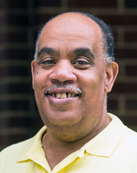
Reverend Keith Harris is a clinical psychologist as well as an ordained pastor at McKinley Church. His infectious humor, his compassionate insights into the human condition, and his spiritual depth make him someone to know! His passion for working with youth and young adults brought Keith to McKinley in 2007 to lead outreach to University of Illinois students and the residents of Presby Hall student dorm. He also serves the congregation in numerous ways, including regular preaching. Keith shares his love of sports, both as spectator and coach, with his two teenage sons. He enjoys music, movies, and manning a barbecue grill.
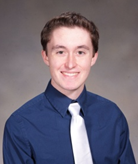
Kenneth Long is an MD/PhD Graduate Student in the Department of Bioengineering. Having worked on water supply and irrigation projects in both Cameroon and Cambodia, he is now working with an multidisciplinary team of Illinois faculty to develop a global health partnership with Njala University in Sierra Leone (http://globalhealth.illinois.edu). As a tireless advocate for the importance of interdisciplinary collaboration as a tool to solve grand challenges facing the world, Kenneth is pursuing a career at the intersection of engineering and medicine. His research focuses on developing smartphone-based diagnostics for infectious diseases, with a particular focus on point-of-care HIV viral load testing as part of an NIH-sponsored fellowship. Kenneth serves as the primary organizer for the Global Health Initiative, and the Chair of the Board of Governors of the University YMCA.
Title: Capacity Building in Global Health: A Discussion on Partnership-Development in West Africa
How do we solve global health challenges as young adults? Many problems facing our global society are seemingly insurmountable to young academics and professionals. In this discussion, Mr. Long will present an example of how a small, grassroots team of individuals united by a common purpose (global health) has sought to make a difference with a bottom-up approach to capacity building. With a strong focus on personal relationships, mutual respect, and the benefit of cross-cultural and cross-disciplinary collaboration,his team has made significant progress in securing funding, support, and momentum toward developing the relationship between Illinois and Njala University in Sierra Leone.
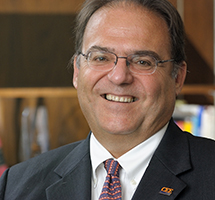
Professor Benito Mariñas is a leader in the area of mechanistic aspects of chemical and ultraviolet light disinfection processes, chemistry of nitrogenous disinfection by-product formation and control, and novel membrane technologies for controlling water-borne pathogens and chemical contaminants. He is a member of the American Chemical Society, American Society of Civil Engineers, American Water Works Association, Association of Environmental Engineering and Science Professors, International Water Association, and Water Environment Federation.
(Abstract )We will discuss various mechanistic aspects of chemical and ultraviolet light disinfection processes and membrane technologies for the particular application of controlling waterborne pathogens. We will look at how to develop hybrid adsorption/membrane processes for the control of pesticides, taste-and-odor-causing compounds and other water contaminants, and working on research projects aimed at elucidating the mechanisms responsible for the formation of disinfection by-products of health concern in drinking water.
Wedneday Medlen is the Membership Officer of the Community Plus Federal Credit Union, which is a member-owned credit union serving anyone who lives, works, worships, or attends school in Champaign, Ford, or Piatt Counties. Ms. Medlen’s background includes experience at a credit union and retail sales management. She is a Certified Credit Union Financial Counselor.
Cheryl Merkel is the manager of the Central Illinois Credit Union. It is a not-for-profit, member owned financial institution whose purpose is to provide its membership a full range of quality financial services at competitive rates. It is committed to member service in a friendly atmosphere, long term financial stability, promotion of thrift, and involvement in our community. Ms. Merkel has helped to grow her institution’s membership to over 3,707 with assets of more than $15,798,690.
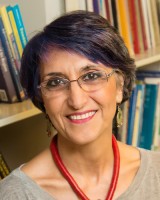 Faranak Miraftab is Professor of Urban and Regional Planning at the University of Illinois, Urbana-Champaign. As an urban scholar of globalization she is interested in the global and local development processes and contingencies involved in the formation of the city and citizens’ struggles to establish dignified livelihoods. Her interdisciplinary ethnographic work crosses planning, geographical, and transnational studies and is empirically based in cities of Latin America, Africa, and North America. She has published two monographs, three edited volumes, and more than forty journal articles and book chapters, and her work has been translated into four languages and reprinted around the world. She was named as a 2014-17 University Scholar, a prestigious award bestowed on faculty at the University of Illinois campuses. Her most recent book, Global Heartland: Displaced Labor, Transnational Lives and Local Placemaking (January 2016, Indiana University press) has been the subject of a documentary movie and a community-based theater production.
Faranak Miraftab is Professor of Urban and Regional Planning at the University of Illinois, Urbana-Champaign. As an urban scholar of globalization she is interested in the global and local development processes and contingencies involved in the formation of the city and citizens’ struggles to establish dignified livelihoods. Her interdisciplinary ethnographic work crosses planning, geographical, and transnational studies and is empirically based in cities of Latin America, Africa, and North America. She has published two monographs, three edited volumes, and more than forty journal articles and book chapters, and her work has been translated into four languages and reprinted around the world. She was named as a 2014-17 University Scholar, a prestigious award bestowed on faculty at the University of Illinois campuses. Her most recent book, Global Heartland: Displaced Labor, Transnational Lives and Local Placemaking (January 2016, Indiana University press) has been the subject of a documentary movie and a community-based theater production.
Professor Laila Hussein Moustafa is the Middle East and North Africa Studies librarian at UIUC. She has worked with International Human Rights organizations, and studied in Columbia University, New York University, and Long Island University. She specializes in Middle East and North Africa Studies, and her research focuses on preserving rare and endangered cultural heritage materials in times of war and conflict. Some of her recent work has appeared in Library Management, International Federation of Library Associations publications, and International Leads, a publication of the American Library Association. In addition, Dr. Moustafa is a member of many committees at the U of I and of the Middle East Studies Association and MELA. This year she was invited to join as a board member of Arcadia, which is administered by the British Library.
 After a career with corporate America beginning with P&G and a stint as an entrepreneur, in 2002 Kathleen Robbins resigned as CEO of Cellular One of East Central Illinois to replicate the Grameen Bank Village Phone program in Haiti. Internal turmoil in Haiti aborted the effort so she went into the Peace Corps and served in Botswana for a short time. In 2006 Kathleen returned to Haiti, living there for 15 months setting up Fonkosel ak pa Digicel, a village phone program. In 2007 she co-founded the jatropha projenou, an effort to develop a biodiesel and soap industry in Haiti using seeds from a native tree, jatropha curcas, to produce oil. The plant oil is then turned into soap and biodiesel. Today she travels to Haiti 3 to 4 times a year. In her other life, she is Executive Director of the McKinley Foundation. Kathleen holds an engineering science degree from the US Air Force Academy, an MBA, and a Doctor of Ministry.
After a career with corporate America beginning with P&G and a stint as an entrepreneur, in 2002 Kathleen Robbins resigned as CEO of Cellular One of East Central Illinois to replicate the Grameen Bank Village Phone program in Haiti. Internal turmoil in Haiti aborted the effort so she went into the Peace Corps and served in Botswana for a short time. In 2006 Kathleen returned to Haiti, living there for 15 months setting up Fonkosel ak pa Digicel, a village phone program. In 2007 she co-founded the jatropha projenou, an effort to develop a biodiesel and soap industry in Haiti using seeds from a native tree, jatropha curcas, to produce oil. The plant oil is then turned into soap and biodiesel. Today she travels to Haiti 3 to 4 times a year. In her other life, she is Executive Director of the McKinley Foundation. Kathleen holds an engineering science degree from the US Air Force Academy, an MBA, and a Doctor of Ministry.
(Abstract) Today Haiti is the poorest country in the western hemisphere. And yet at one time it accounted for 40% of Napoleon’s income, was the first and only successful slave revolution to result in a country, and was the second country in the western hemisphere to gain its independence in 1804.
So what changed? Why did it happen? What is being done today to improve the lives of the Haitian people? What are the obstacles at the micro and macro level? And most importantly, what can we learn from Haiti’s experience?
These are the questions we will explore!
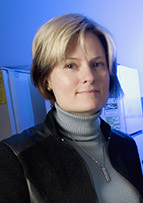
Dr. Joanna L. Shisler was trained as a molecular virologist during her PhD, where she studied adenoviruses, and her post-doctoral fellowship, where she studied poxviruses. She is now an Associate Professor of Microbiology at the University of Illinois, where she continues to study viruses. She is interested in many aspects of virology, including how viruses evade immune responses and environmental virology. She has collaborated with civil engineers at the University of Illinois to study viruses and drinking water safety. In particular, she has examined how solar irradiation, free chlorine and monochloramine function on a molecular level to inactivate adenoviruses and rotaviruses. More recently, she has begun to examine how environmental virus populations change over time and in relation to climate change. She also is Associate Director of Water and Health Research for the Safe Global Water Institute at the University of Illinois, and an Affiliate at the University of Illinois Institute for Genomic Biology.
(Abstract) Nearly 25% of the global population in 2012 (1.8 billion people) consumed fecally-contaminated water. This water can contain bacteria, protozoa and viruses. It is well-known that bacteria are major causes of diarrhea transmitted through unsafe drinking water. What is less appreciated is the impact of viruses in these same drinking water sources. We use several approaches where we follow the lifecycle of adenovirus in host cells to better understand how to devise new water treatments that will inactivate viruses and new real-time sensors for viruses in water sources. This knowledge can ultimately be used to design better water treatment systems for safe drinking water.
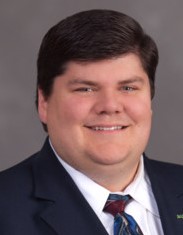 Bryan Smith is the Chief Operating Manager of the Champaign-Urbana Mass Transit District (MTD), a position he has held since the beginning of 2015. He is the manager of MTD’s Operations, Maintenance, Safety and Training, and Marketing/Customer Service/Communications Departments.
Bryan Smith is the Chief Operating Manager of the Champaign-Urbana Mass Transit District (MTD), a position he has held since the beginning of 2015. He is the manager of MTD’s Operations, Maintenance, Safety and Training, and Marketing/Customer Service/Communications Departments.
Dr. Sam Smith is the engagement director at Krannert Center for the Performing Arts and is often focused on cultural, community, and youth engagement. HIs role is to extend the impact of Krannert Center specifically and the role of the arts more broadly. To accomplish this, he manages and participates in a number of projects and activities with schools, local organizations, and other university departments. He has local, national, and international interests and serves primarily as a connector and point of access to both Krannert Center and the College of Fine and Applied Arts. Dr. Smith is most concerned about and committed to engagement projects that unite diverse audiences, address significant and meaningful issues, and accomplish substantive change. He believes that the arts have enormous transformative potential and that those energies, like chi, can be gathered, cultivated, and directed toward important human accomplishments.
(Abstract) In Dr. Smith’s engaging and interactive workshop, YALI Fellows will explore the unique and transformative capacities of arts and cultural institutions and responsive programming to catalyze and construct communities, increase civic and cultural engagement, stimulate economic development, and address meaningful social issues. Participants will use a set of tools emerging out of ensemble theater practices to explore elements of team building and decision-making.
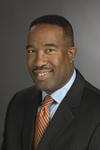
Torrence E. Sparkman, Ph.D., is an assistant professor in the Department of Service Systems. He joined Rochester Institute of Technology (RIT) in 2014 and was previously a Visiting Associate Professor and Program Outreach Coordinator at the University of Houston. Sparkman’s research interests are focused on exploring the boundaries of leadership development at the executive level primarily in non-profit, higher education, and government organizations. He is also interested in leadership development in multinational organizations. Dr. Sparkman is an active member of the Academy of Human Resource Development and has been awarded numerous honors including Dissertation of the Year (2013) American Educational Research Association, Workplace Learning SIG. “Understanding the Leadership Development of Executive Church Denomination Leaders: A Phenomenal Approach,” and Synergy Fellowships (2010-2011) University of Illinois, Department of Education, Policy, Organization and Leadership.
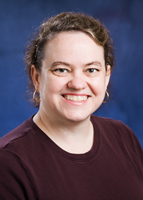
Dr. Brenda Anne Wilson is a Professor of Microbiology in the School of Molecular and Cellular Biology, the Institute for Genomic Biology (IGB), and the Beckman Institute for Advanced Science and Technology, Co-Director for the Center for Zoonosis Research (CZR), and Associate Director of Undergraduate Education in the School of Molecular and Cellular Biology at the University of Illinois at Urbana-Champaign (UIUC). Dr. Wilson’s research, continuously supported through numerous grants from the NIH, NSF,USDA and other agencies and foundations, focuses on host-microbe interactions with three main basic science and translational research thrusts: (1) understanding the structure and function of bacterial protein toxins, their molecular interactions with and biochemical effects on eukaryotic host target cells, (2) development of novel post-exposure antitoxin therapeutics and toxin-based therapeutic delivery platforms and toxin-based cell biology tools, and (3) exploiting comparative and functional genomic technologies to explore the role and co-evolutionary aspects of microbiomes in health and disease in humans and nonhuman primates.
(Abstract) Impact of Ebola on Public Management:
In 2014-2015, we were surprised by the largest Ebola outbreak in history, affecting multiple countries in Western Africa. As of March 2016, the number of Ebola cases had reached 28,640 with 11,315 deaths. Even though the epidemic is no longer a threat, there are still a few flare-ups occurring, mostly in Guinea and Sierra Leone. Prior to 2014, there were only occasional outbreaks in scattered villages will relatively low numbers of casualties. What was so different about this outbreak? What have we learned from this experience? What practices worked? Which did not? How can this sort of epidemic be avoided in the future? Can we prevent other similar outbreaks from occurring? Can our responses to new threats be enhanced based on lessons learned here? These issues regarding global biosecurity and the impact of Ebola will be addressed in this lecture.
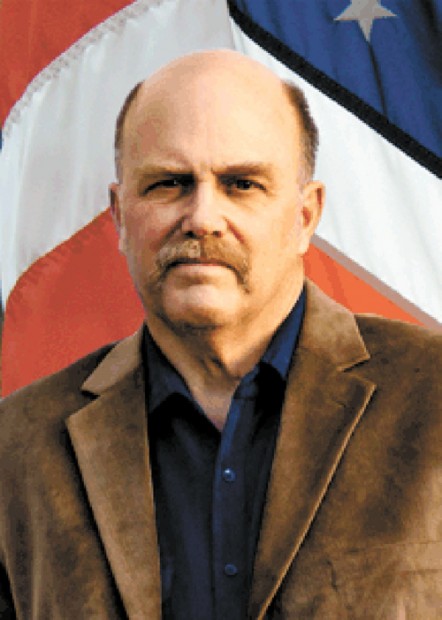
George Wissmiller is a retired 25 year veteran Champaign City Police Officer. Prior to holding that position, he worked in the US Army Military Police prison at Fort Ord, California. He was an instructor at the U of I Police Training Institute and is a National Safety Council instructor. He ran unsuccessfully for the Illinois State House of representatives in 2008 and successfully for the DeWitt County Board in 2012. He won that election as an independent―neither a Republican nor a Democrat. He has been involved in the effort to protect the Mahomet Sole Source Aquifer from the toxic dumping at the Clinton Landfill directly over it for about nine years. He is currently vice president of WATCH (an environmental activist group) and member of several other groups with similar concerns. He also serves on Representative Ammons’s Criminal Justice and Environmental committees.
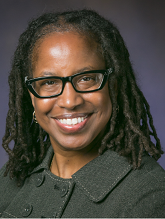 Professor Assata Zerai currently holds positions as Director of the Center for African Studies, Associate Dean of the Graduate College, and Associate Professor of Sociology at the University of Illinois (Urbana-Champaign).
Professor Assata Zerai currently holds positions as Director of the Center for African Studies, Associate Dean of the Graduate College, and Associate Professor of Sociology at the University of Illinois (Urbana-Champaign).
Serving as faculty in Sociology at Illinois since 2002, Zerai’s research frameworks (theory and methodology) build from Black feminist thought, intersectionality, and African and Africana feminisms, and her interests have included maternal and child health, health activism, and safe water and sanitation in Africa and the African Diaspora, and in U.S. populations, as well as diversity and inclusiveness in U.S. Protestant congregations, and making the work of indigenous and marginalized scholars and activists more accessible. Dr. Zerai’s Hypermasculinity and State Violence in Zimbabwe: An Africana Feminist Analysis of Maternal and Child Health was published by Africa World Press (2014). She has just completed Intersectionality in Intentional Communities: The Struggle for Inclusivity in Multicultural U.S. Protestant Congregations (in press 2016, Lexington Books). She is author of Dehumanizing Discourse, Law and Policy in America: A Crack Mother’s Nightmare (Ashgate 2002) And her fourth book, Safe Water, Sanitation and Early Childhood Malnutrition in East Africa: An Africana Feminist Analysis of the lives of Women and Children in Kenya, Tanzania and Uganda, is currently under contract with Rowman and Littlefield.
Spring 2015, as Associate Dean in the Grad College, Zerai has worked with colleagues to establish an Alfred P. Sloan Foundation University Center of Exemplary Mentoring at the University of Illinois. They were awarded $1M to increase numbers of graduate students underrepresented in STEM.
Fall 2015, as Director of African Studies, Zerai has worked with core and affiliate faculty and staff integrate expertise from our internationally recognized programs in engineering, with social science methodologies and humanities country-specific skill sets, training in cultural competency, and social justice and to propose to host a Mandela Washington Fellowship Young African Leaders Institute in public management. Zerai is now co-PI on this grant, received from the U.S. Department of State. She is also PI on the Title VI National Resource Center grant to the Center for African Studies at the University of Illinois.
Zerai has been selected for the Larine Y. Cowan “Make a Difference” Leadership in Diversity Award at the University of Illinois in November 2015. And Zerai has just received recognition from the U of I Women’s Resources Center and Office of Inclusion and Intercultural Relations for her work on behalf of women internationally during the March 2016 International Women’s Day Celebration.


